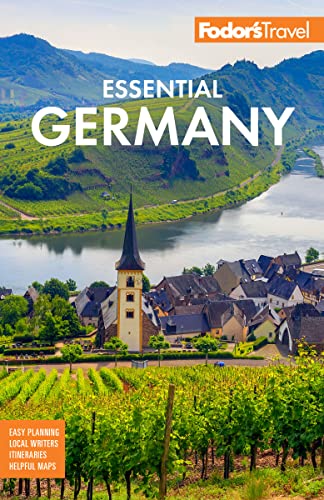Quintessential Germany
If you want to get a sense of contemporary German culture and indulge in some of its pleasures, start by familiarizing yourself with the rituals of daily life.
Culture Vultures
With more theaters, concert halls, and opera houses per capita than any other country in the world, high culture is an important part of German life. Before the formation of the German state, regional courts competed to see who had the best artists, actors, musicians, and stages, resulting in the development of a network of strong cultural centers that exists to this day. For Germans, high culture is not just for the elite. They consider it so important to provide communities with rich cultural life that they use their tax money to do it. As a result, tickets to these publicly funded operas, classical music concerts, ballets, and plays are quite inexpensive, with tickets readily available in the €10 to €40 range. Drop in on a performance or concert—it's one of the best travel bargains around.
Another Beer, Bitte
The German Kneipekultur, or pub culture, is an important and long-standing tradition. Stammgäste, or regulars, stop by their local pub as often as every evening to drink beer and catch up. In summer, Kneipe life moves outdoors to beer gardens. Some, such as the famous Chinese Pavilion in Munich's English Garden, are institutions, and can seat hundreds of guests. Others are more casual, consisting of a café's graveled back garden under soaring chestnut trees. Most beer gardens offer some sort of food: self-serve areas might sell pasta or lamb in addition to grilled sausages and pretzels. Although beer gardens are found all over Germany, the smoky beer-hall experience—with dirndls and oompah bands—is traditionally Bavarian. You'll discover how different various combinations of the three key ingredients—malt, hops, and water—can taste.
Easy Being Green
Germany has one of the world's most environmentally conscious societies. Conserving resources, whether electricity or food, is second nature in a country where postwar deprivation has not yet faded from public memory. Recycling is practically a national sport, with separate garbage bins for regular trash, clear glass, green glass, plastics and cans, and organic garbage. Keep your eyes out for the giant brown, green, and yellow pods on the streets—these are used for neighborhood recycling. Many people ride their bikes to work (even in high heels or business suits) much of the year, and there are well-defined bike lanes in most cities. Drivers know to keep an eye out for cyclists, and as a visitor you'll need to be careful not to walk in the bike lanes. Great public transportation is also part of this environmental commitment.
Kaffe und Kuchen
The tradition of afternoon coffee and cake, usually enjoyed around 3 pm, is a serious matter. If you can, finagle an invitation to someone's house to get the real experience, which might involve a simple homemade Quarkkuchen (cheesecake), or a spread of creamy cakes topped with apples, rhubarb, strawberries, or cherries and whipped cream. Otherwise, find an old-fashioned Konditorei, or pastry shop. Germans bake more than a thousand different kinds of cakes, with even more regional variations. Among the most famous is the Schwarzwälder Kirschtorte (Black Forest cake), a chocolate layer cake soaked in Kirsch schnapps, with cherries, whipped cream, and chocolate shavings. Another favorite is the Bienenstich (bee sting), a layered sponge cake filled with cream and topped with a layer of crunchy honey-caramelized almonds.




